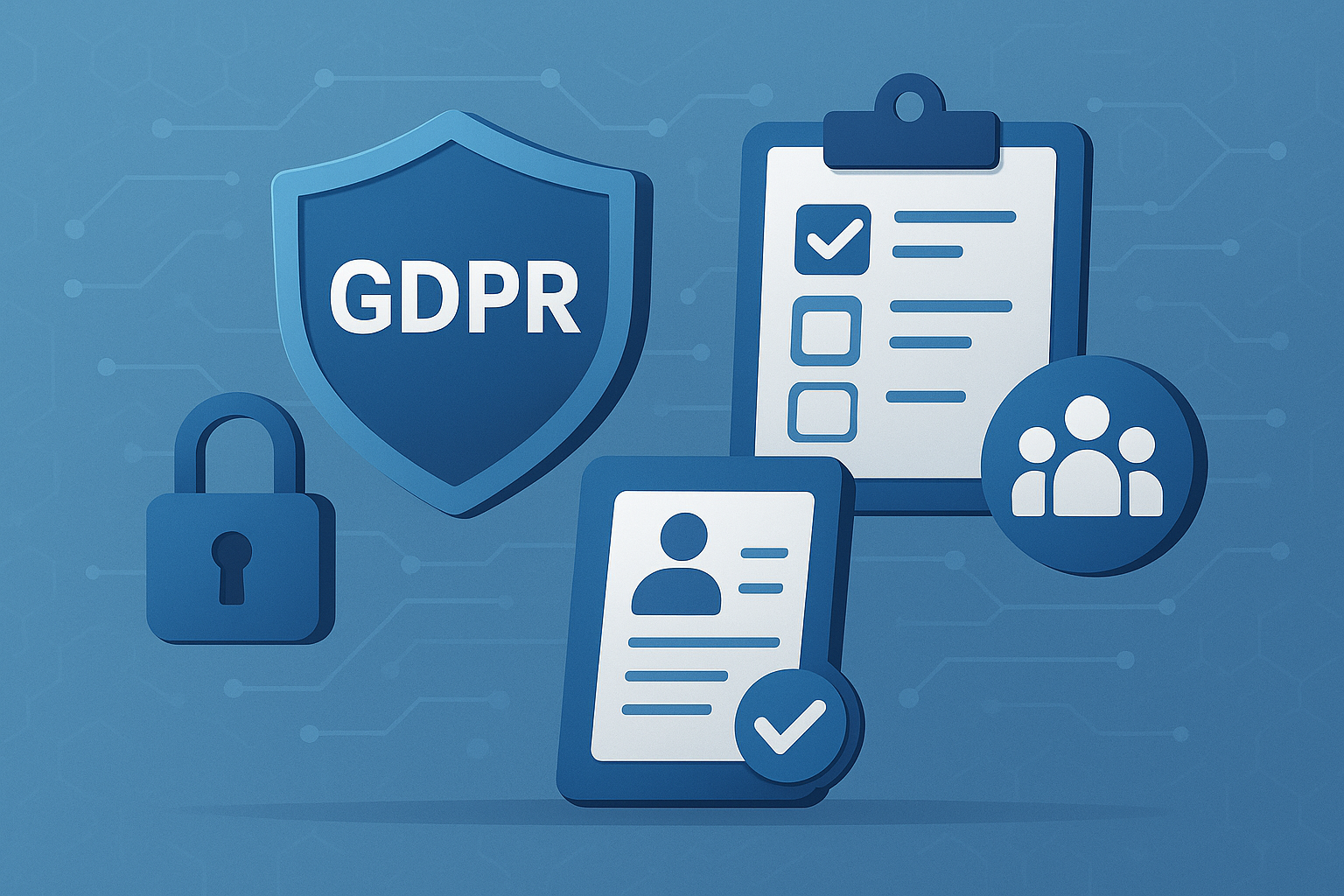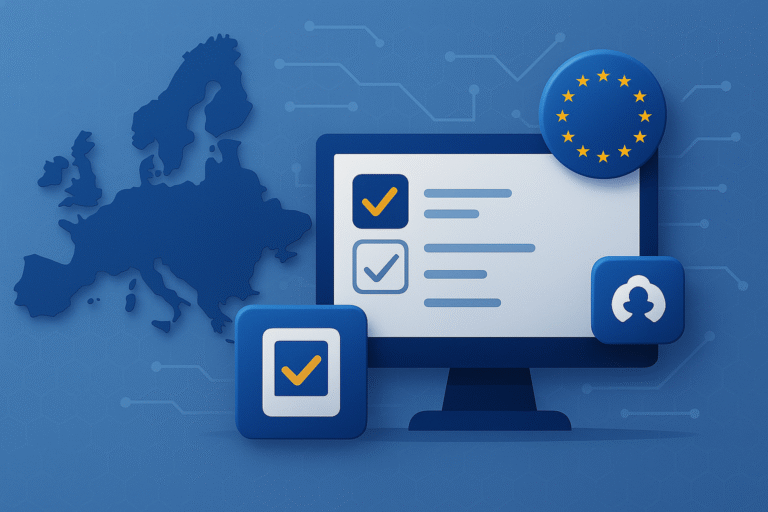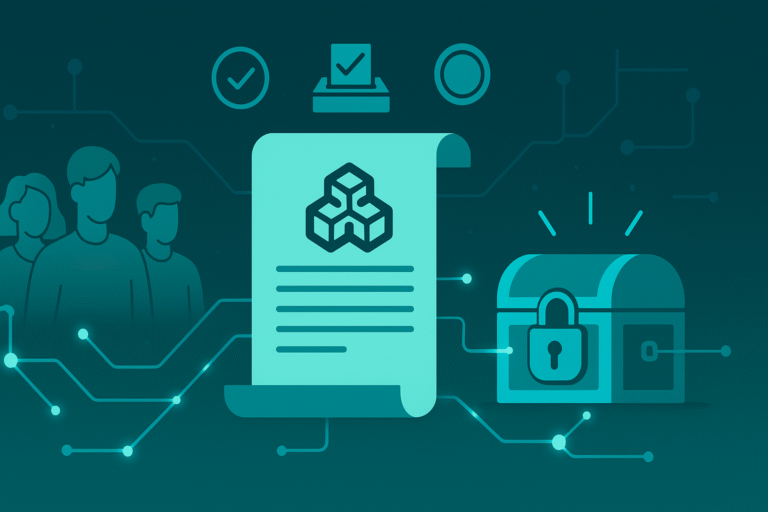
GDPR and participatory processes: what to know
Introduction
In recent years, the General Data Protection Regulation (GDPR) has profoundly changed how personal data is collected, managed, and stored. This does not only concern companies and institutions but also communities, associations, and digital platforms promoting participatory processes.
While GDPR represents a fundamental safeguard for citizens, it also introduces obligations and responsibilities that organizers of participation processes must understand. This article explores the key aspects to ensure GDPR compliance in participatory processes, avoiding legal risks and strengthening citizen trust.
Why GDPR matters in participation
Participatory processes, whether online or offline, always involve the collection and processing of data:
- personal information (name, surname, age),
- contact details (email, phone),
- political opinions or preferences on sensitive topics,
- authentication data for accessing digital platforms.
All of these fall under the definition of personal data, and in some cases even sensitive data. GDPR sets strict rules on how they must be managed, with the aim of ensuring privacy and transparency.
Core principles of GDPR
Organizers of participatory processes must adhere to the key principles of GDPR:
- Lawfulness, fairness, and transparency: participants must clearly know how and why their data is being processed.
- Purpose limitation: data must only be used for the purposes stated (e.g., managing the consultation).
- Data minimization: collect only what is strictly necessary.
- Accuracy: ensure data is correct and up to date.
- Storage limitation: do not keep data longer than necessary.
- Integrity and confidentiality: adopt security measures to prevent unauthorized access.
- Accountability: organizers must be able to demonstrate compliance.
Practical implications for participatory processes
Applying GDPR to a participatory process means implementing concrete measures:
- Clear and accessible privacy notice: before participating, citizens must be informed about purpose, retention period, and their rights.
- Explicit consent: when required, consent must be gathered clearly and documented.
- Secure data management: protected storage, encrypted connections, secure backups.
- Anonymization or pseudonymization: especially useful in deliberative processes and surveys, reducing risks related to sensitive data.
- Right to erasure and portability: citizens must be able to request data deletion or receive a copy of their data.
Challenges in digital processes
Digital participation platforms amplify risks related to data protection. Some mistakes to avoid (as discussed in Mistakes to avoid in online participation):
- collecting excessive data,
- failing to guarantee secure authentication,
- not providing transparent feedback about data collected.
In international contexts, the cross-border transfer of data must also be carefully regulated, requiring adequate safeguards and agreements.
Offline processes and GDPR
In-person meetings also require compliance. Video recordings, attendance sheets, and paper questionnaires all fall under GDPR. Organizers must therefore:
- inform participants of the purposes of data collection,
- avoid recording sensitive data without justification,
- store physical documents securely.
Concrete examples
Some real-world cases highlight the importance of GDPR:
- In Estonia, where online voting is widespread (Estonia and online voting: a model to study), data protection is a core part of the e-government system.
- In Finland (Digital democracy in Finland), platforms such as Kansalaisaloite provide clear policies and independent oversight for data privacy.
- In Spain, the Decide Madrid platform publishes reports on data management as part of its transparency commitments.
GDPR and citizen trust
Data protection is not only a legal obligation but also a cornerstone of trust. When citizens know their data is managed securely and transparently, they are more motivated to participate. Conversely, a data breach can irreparably damage the credibility of an initiative.
Reflections for Concorder
The Concorder project aims to embed GDPR compliance from the ground up, offering:
- secure user authentication,
- transparent data management,
- options to anonymize contributions,
- audit trails to verify every step of the process.
This way, the platform not only meets legal requirements but also helps build a participatory environment based on mutual trust.
Conclusion
GDPR is both a challenge and an opportunity. Applied to participatory processes, it ensures that citizens’ fundamental rights are respected while reinforcing the legitimacy of collective decisions.
Anyone promoting participatory pathways, online or offline, should view data protection not as a barrier but as a pillar for building inclusive, transparent, and reliable processes.


